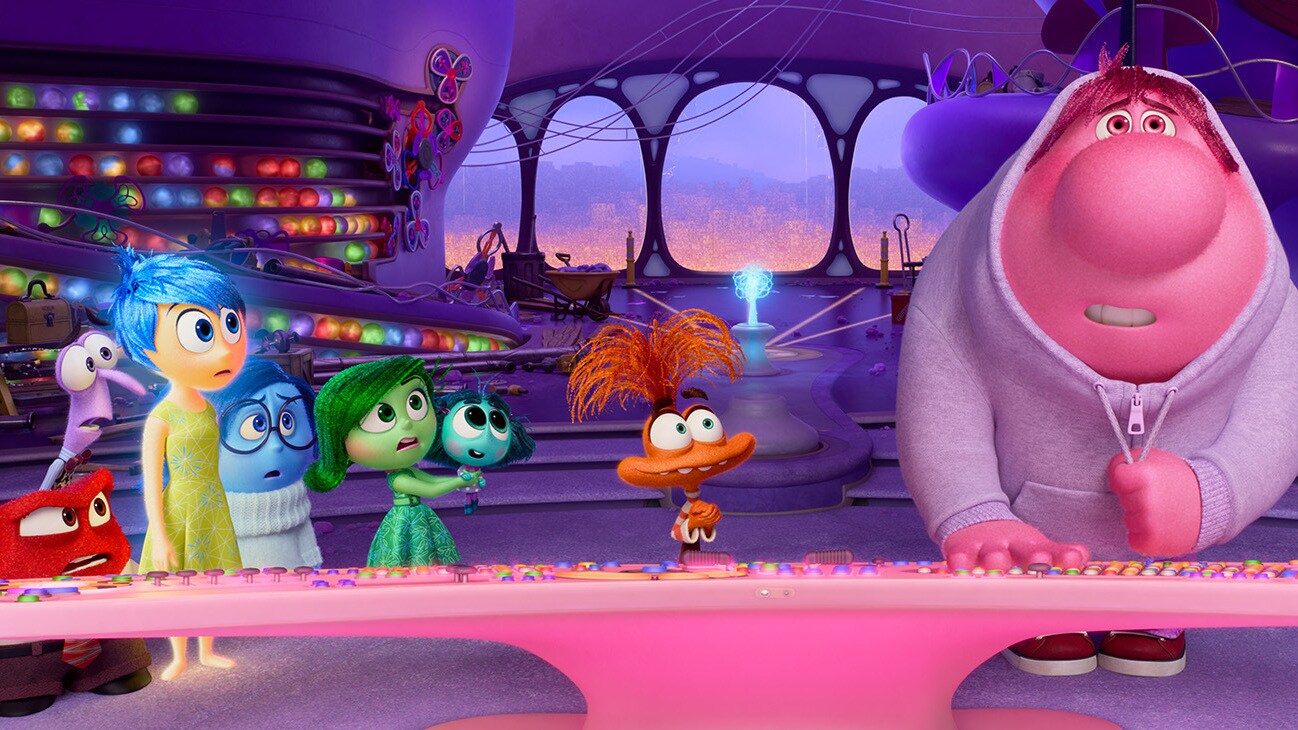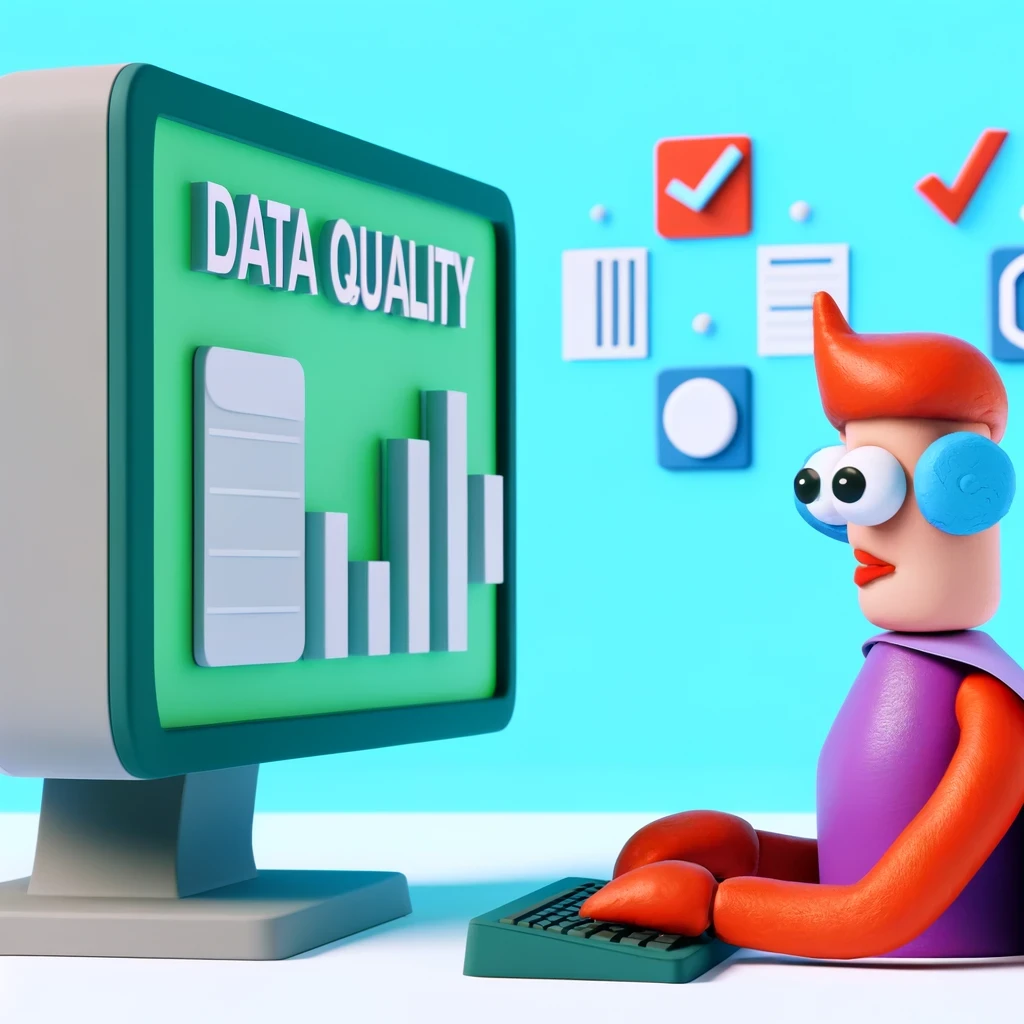


Published in Movie
Published in Movie
Published in Movie
Image credit by insideout2
Image credit by insideout2
Image credit by insideout2



Sanda Trip
Sanda Trip
Sanda Trip
It contains various daily stories of Sanda.
It contains various daily stories of Sanda.
It contains various daily stories of Sanda.
June 15, 2024
June 15, 2024
June 15, 2024
Inside Out 2: A Journey Through Adolescence and Anxiety
Inside Out 2: A Journey Through Adolescence and Anxiety
Inside Out 2: A Journey Through Adolescence and Anxiety
Inside Out 2: A Journey Through Adolescence and Anxiety
Inside Out 2: A Journey Through Adolescence and Anxiety
Inside Out 2: A Journey Through Adolescence and Anxiety
Movie Overview
The film starts two years after the original, with 13-year-old Riley playing in an ice hockey game. The five emotions in her head each take on their roles to control Riley, and she scores a dramatic winning goal at the last moment. Riley gains close friends, Grace and Bree, on her ice hockey team and dreams of joining the prestigious high school team, the Fire Hawks. Internally, Riley has grown over the past two years, forming new islands and developing a glowing flower at the back of the headquarters that repeatedly says, "I am a good person."
Riley plans to attend an ice hockey camp at the high school with her best friends and goes to sleep excitedly. However, during the night, a continuous alarm wakes the emotions. They discover the cause is the 'Puberty' button, and in a panic, Joy sends the noisy button to the memory dump. The next morning, workers invade the headquarters and remodel it, transforming Riley into a very sensitive adolescent overnight.
The next day, Riley snaps at her mom who checks on her, and heads to the hockey camp with her friends and dad. On the way, she learns that Grace and Bree are assigned to different high schools, causing her anxiety about becoming an outcast. At the camp, she meets her idol, Fire Hawks captain Valentina Bell Ortiz, and new emotions - Anxiety, Envy, Embarrassment, and Boredom - appear in the headquarters.
Anxiety and New Emotions
This movie explores Riley's anxiety and how she deals with it while striving to join the team she admires. Anxiety, portrayed as a troublemaker, fears failure and despair, resonating with many viewers. A key theme is the formation of beliefs. What experiences shape our beliefs? What stories did we grow up hearing? What emotions surround us?
Irrational thinking patterns make us believe falsehoods are true. Overcoming this requires constant fact-checking and clear causal thinking. Changing erroneous beliefs through fact-based experiences is the start of rational thinking.
Irrational Beliefs and Thoughts
What irrational beliefs do I hold? Cognitive Behavioral Therapy (CBT) introduces the concept of core beliefs, categorized into beliefs about the world, oneself, and others. Negative core beliefs often fall into three categories:
Beliefs related to incompetence
Beliefs related to being unloved
Beliefs related to worthlessness
These negative beliefs lead to irrational thoughts and behaviors. Here are some specific examples:
Abandonment Belief: "I'll end up alone." This belief causes anxiety in close relationships, fearing that loved ones will eventually leave.
Mistrust Belief: "I can't trust anyone." This leads to constant vigilance and suspicion in relationships.
Emotional Deprivation Belief: "My needs will never be met." Strong belief that no one can fulfill one's needs.
Defectiveness Belief: "If people knew the real me, they'd be disappointed." This leads to feelings of shame and comparison.
Social Isolation Belief: "I don't belong here." Feeling socially isolated even within a community or group.
Dependence Belief: "I can't do it alone." Feeling helpless and unable to accomplish tasks independently.
Vulnerability Belief: "Something bad is going to happen." Constantly preparing for potential danger.
Failure Belief: "I'll ultimately fail." Despite recognition, one performs below their capability or avoids challenging tasks.
Negativity Belief: "Life is full of problems." Believing that even when things go well, something bad will follow.
Entitlement Belief: "I'm different from others." Feeling special or above others, often from either excessive pampering or neglect in childhood.
Subjugation Belief: "Do whatever you want." Suppressing one's desires and opinions, feeling guilty or afraid to express them.
Emotional Inhibition Belief: "It's wrong to show emotions." Viewing emotional expression negatively.
Unrelenting Standards Belief: "It's never enough." Believing one must be perfect, often linked to workaholism.
Punitiveness Belief: "Wrongdoings must be punished." Believing in harsh retribution, with no room for forgiveness.
Reflecting on My Beliefs
I, too, have irrational beliefs. For example, I often suppress negative emotions and hold myself to harsh standards, always feeling inadequate. In "Inside Out 2," Joy tries to leave only positive memories in the belief system, similar to the belief in suppressing negative emotions. However, suppressing emotions isn't always right. Expressing negative emotions healthily can relieve stress. Additionally, harsh standards make us feel inadequate, thinking we need to achieve certain things to be recognized, similar to Riley's anxiety during her games.
Riley almost developed irrational beliefs like "Unrelenting Standards: It's never enough," "Subjugation Belief: Do whatever you want," "Vulnerability Belief: Something bad is going to happen," and "Defectiveness Belief: If people knew the real me, they'd be disappointed." However, stable parental love, trust from friends, and experiences of apology and forgiveness helped her. Supporting oneself and building rational beliefs requires a corrective emotional experience, as mentioned by Dr. Oh Eun-young. This involves creating new experiences to replace those that led to irrational beliefs, fostering an environment of support and love.
In today's society, unstable environments foster irrational beliefs. During job hunting, one might feel inadequate and suppress anxiety during interviews. Reflecting on our experiences and emotions helps form correct beliefs. Accepting all experiences and emotions and transforming irrational beliefs through new, rational experiences are crucial. Continuous practice and reflection will lead to changes in beliefs and better outcomes. "Inside Out 2" beautifully addresses these aspects, offering comfort to viewers.
Movie Overview
The film starts two years after the original, with 13-year-old Riley playing in an ice hockey game. The five emotions in her head each take on their roles to control Riley, and she scores a dramatic winning goal at the last moment. Riley gains close friends, Grace and Bree, on her ice hockey team and dreams of joining the prestigious high school team, the Fire Hawks. Internally, Riley has grown over the past two years, forming new islands and developing a glowing flower at the back of the headquarters that repeatedly says, "I am a good person."
Riley plans to attend an ice hockey camp at the high school with her best friends and goes to sleep excitedly. However, during the night, a continuous alarm wakes the emotions. They discover the cause is the 'Puberty' button, and in a panic, Joy sends the noisy button to the memory dump. The next morning, workers invade the headquarters and remodel it, transforming Riley into a very sensitive adolescent overnight.
The next day, Riley snaps at her mom who checks on her, and heads to the hockey camp with her friends and dad. On the way, she learns that Grace and Bree are assigned to different high schools, causing her anxiety about becoming an outcast. At the camp, she meets her idol, Fire Hawks captain Valentina Bell Ortiz, and new emotions - Anxiety, Envy, Embarrassment, and Boredom - appear in the headquarters.
Anxiety and New Emotions
This movie explores Riley's anxiety and how she deals with it while striving to join the team she admires. Anxiety, portrayed as a troublemaker, fears failure and despair, resonating with many viewers. A key theme is the formation of beliefs. What experiences shape our beliefs? What stories did we grow up hearing? What emotions surround us?
Irrational thinking patterns make us believe falsehoods are true. Overcoming this requires constant fact-checking and clear causal thinking. Changing erroneous beliefs through fact-based experiences is the start of rational thinking.
Irrational Beliefs and Thoughts
What irrational beliefs do I hold? Cognitive Behavioral Therapy (CBT) introduces the concept of core beliefs, categorized into beliefs about the world, oneself, and others. Negative core beliefs often fall into three categories:
Beliefs related to incompetence
Beliefs related to being unloved
Beliefs related to worthlessness
These negative beliefs lead to irrational thoughts and behaviors. Here are some specific examples:
Abandonment Belief: "I'll end up alone." This belief causes anxiety in close relationships, fearing that loved ones will eventually leave.
Mistrust Belief: "I can't trust anyone." This leads to constant vigilance and suspicion in relationships.
Emotional Deprivation Belief: "My needs will never be met." Strong belief that no one can fulfill one's needs.
Defectiveness Belief: "If people knew the real me, they'd be disappointed." This leads to feelings of shame and comparison.
Social Isolation Belief: "I don't belong here." Feeling socially isolated even within a community or group.
Dependence Belief: "I can't do it alone." Feeling helpless and unable to accomplish tasks independently.
Vulnerability Belief: "Something bad is going to happen." Constantly preparing for potential danger.
Failure Belief: "I'll ultimately fail." Despite recognition, one performs below their capability or avoids challenging tasks.
Negativity Belief: "Life is full of problems." Believing that even when things go well, something bad will follow.
Entitlement Belief: "I'm different from others." Feeling special or above others, often from either excessive pampering or neglect in childhood.
Subjugation Belief: "Do whatever you want." Suppressing one's desires and opinions, feeling guilty or afraid to express them.
Emotional Inhibition Belief: "It's wrong to show emotions." Viewing emotional expression negatively.
Unrelenting Standards Belief: "It's never enough." Believing one must be perfect, often linked to workaholism.
Punitiveness Belief: "Wrongdoings must be punished." Believing in harsh retribution, with no room for forgiveness.
Reflecting on My Beliefs
I, too, have irrational beliefs. For example, I often suppress negative emotions and hold myself to harsh standards, always feeling inadequate. In "Inside Out 2," Joy tries to leave only positive memories in the belief system, similar to the belief in suppressing negative emotions. However, suppressing emotions isn't always right. Expressing negative emotions healthily can relieve stress. Additionally, harsh standards make us feel inadequate, thinking we need to achieve certain things to be recognized, similar to Riley's anxiety during her games.
Riley almost developed irrational beliefs like "Unrelenting Standards: It's never enough," "Subjugation Belief: Do whatever you want," "Vulnerability Belief: Something bad is going to happen," and "Defectiveness Belief: If people knew the real me, they'd be disappointed." However, stable parental love, trust from friends, and experiences of apology and forgiveness helped her. Supporting oneself and building rational beliefs requires a corrective emotional experience, as mentioned by Dr. Oh Eun-young. This involves creating new experiences to replace those that led to irrational beliefs, fostering an environment of support and love.
In today's society, unstable environments foster irrational beliefs. During job hunting, one might feel inadequate and suppress anxiety during interviews. Reflecting on our experiences and emotions helps form correct beliefs. Accepting all experiences and emotions and transforming irrational beliefs through new, rational experiences are crucial. Continuous practice and reflection will lead to changes in beliefs and better outcomes. "Inside Out 2" beautifully addresses these aspects, offering comfort to viewers.
Movie Overview
The film starts two years after the original, with 13-year-old Riley playing in an ice hockey game. The five emotions in her head each take on their roles to control Riley, and she scores a dramatic winning goal at the last moment. Riley gains close friends, Grace and Bree, on her ice hockey team and dreams of joining the prestigious high school team, the Fire Hawks. Internally, Riley has grown over the past two years, forming new islands and developing a glowing flower at the back of the headquarters that repeatedly says, "I am a good person."
Riley plans to attend an ice hockey camp at the high school with her best friends and goes to sleep excitedly. However, during the night, a continuous alarm wakes the emotions. They discover the cause is the 'Puberty' button, and in a panic, Joy sends the noisy button to the memory dump. The next morning, workers invade the headquarters and remodel it, transforming Riley into a very sensitive adolescent overnight.
The next day, Riley snaps at her mom who checks on her, and heads to the hockey camp with her friends and dad. On the way, she learns that Grace and Bree are assigned to different high schools, causing her anxiety about becoming an outcast. At the camp, she meets her idol, Fire Hawks captain Valentina Bell Ortiz, and new emotions - Anxiety, Envy, Embarrassment, and Boredom - appear in the headquarters.
Anxiety and New Emotions
This movie explores Riley's anxiety and how she deals with it while striving to join the team she admires. Anxiety, portrayed as a troublemaker, fears failure and despair, resonating with many viewers. A key theme is the formation of beliefs. What experiences shape our beliefs? What stories did we grow up hearing? What emotions surround us?
Irrational thinking patterns make us believe falsehoods are true. Overcoming this requires constant fact-checking and clear causal thinking. Changing erroneous beliefs through fact-based experiences is the start of rational thinking.
Irrational Beliefs and Thoughts
What irrational beliefs do I hold? Cognitive Behavioral Therapy (CBT) introduces the concept of core beliefs, categorized into beliefs about the world, oneself, and others. Negative core beliefs often fall into three categories:
Beliefs related to incompetence
Beliefs related to being unloved
Beliefs related to worthlessness
These negative beliefs lead to irrational thoughts and behaviors. Here are some specific examples:
Abandonment Belief: "I'll end up alone." This belief causes anxiety in close relationships, fearing that loved ones will eventually leave.
Mistrust Belief: "I can't trust anyone." This leads to constant vigilance and suspicion in relationships.
Emotional Deprivation Belief: "My needs will never be met." Strong belief that no one can fulfill one's needs.
Defectiveness Belief: "If people knew the real me, they'd be disappointed." This leads to feelings of shame and comparison.
Social Isolation Belief: "I don't belong here." Feeling socially isolated even within a community or group.
Dependence Belief: "I can't do it alone." Feeling helpless and unable to accomplish tasks independently.
Vulnerability Belief: "Something bad is going to happen." Constantly preparing for potential danger.
Failure Belief: "I'll ultimately fail." Despite recognition, one performs below their capability or avoids challenging tasks.
Negativity Belief: "Life is full of problems." Believing that even when things go well, something bad will follow.
Entitlement Belief: "I'm different from others." Feeling special or above others, often from either excessive pampering or neglect in childhood.
Subjugation Belief: "Do whatever you want." Suppressing one's desires and opinions, feeling guilty or afraid to express them.
Emotional Inhibition Belief: "It's wrong to show emotions." Viewing emotional expression negatively.
Unrelenting Standards Belief: "It's never enough." Believing one must be perfect, often linked to workaholism.
Punitiveness Belief: "Wrongdoings must be punished." Believing in harsh retribution, with no room for forgiveness.
Reflecting on My Beliefs
I, too, have irrational beliefs. For example, I often suppress negative emotions and hold myself to harsh standards, always feeling inadequate. In "Inside Out 2," Joy tries to leave only positive memories in the belief system, similar to the belief in suppressing negative emotions. However, suppressing emotions isn't always right. Expressing negative emotions healthily can relieve stress. Additionally, harsh standards make us feel inadequate, thinking we need to achieve certain things to be recognized, similar to Riley's anxiety during her games.
Riley almost developed irrational beliefs like "Unrelenting Standards: It's never enough," "Subjugation Belief: Do whatever you want," "Vulnerability Belief: Something bad is going to happen," and "Defectiveness Belief: If people knew the real me, they'd be disappointed." However, stable parental love, trust from friends, and experiences of apology and forgiveness helped her. Supporting oneself and building rational beliefs requires a corrective emotional experience, as mentioned by Dr. Oh Eun-young. This involves creating new experiences to replace those that led to irrational beliefs, fostering an environment of support and love.
In today's society, unstable environments foster irrational beliefs. During job hunting, one might feel inadequate and suppress anxiety during interviews. Reflecting on our experiences and emotions helps form correct beliefs. Accepting all experiences and emotions and transforming irrational beliefs through new, rational experiences are crucial. Continuous practice and reflection will lead to changes in beliefs and better outcomes. "Inside Out 2" beautifully addresses these aspects, offering comfort to viewers.
Continue Reading
Continue Reading
Continue Reading
